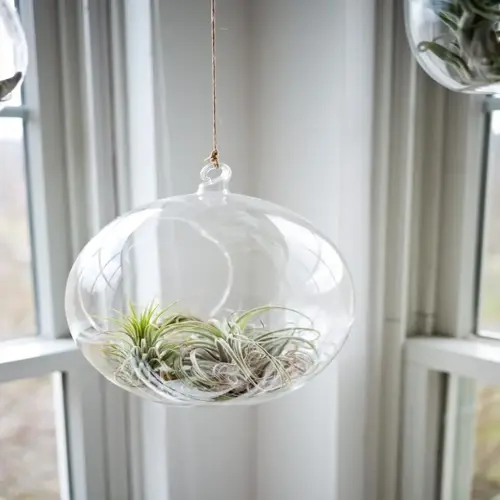Where should I place ferns in my home?

Written by
Olivia Mitchell
Reviewed by
Prof. Samuel Fitzgerald, Ph.D.The proper location can make the difference between fern survival and thriving growth. I learned this when I moved my Boston fern from the dark corner of the basement to a window facing east. Generally, different locations in your home provide ferns with varying amounts of light and humidity. Understanding the various microclimates within your home can make all the difference in your success.
Living Room
- Place 3-5 feet from east-facing windows
- Use sheer curtains on south exposures
- Group with other humidity-loving plants
- Avoid spots near heating vents or AC units
Bathroom
- Install on shelves near showers
- Utilize natural humidity from bathing
- Supplement with grow lights if windowless
- Ensure adequate ventilation to prevent mold
Bedroom
- Position on north-facing windowsills
- Use humidifiers during sleep hours
- Place on dressers away from direct sun
- Rotate weekly for balanced light exposure
Light quality will determine your success in placement. Ferns need bright indirect light to simulate forest understory conditions. An eastern-facing window is ideal for morning light. North-facing windows provide consistent, indirect light. I use a light meter to check the light intensity, aiming for a target of 100-300 footcandles.
To prevent crispy leaves, it is essential to manage humidity levels effectively. Bathrooms will typically provide 50-60% humidity levels, which is ideal for ferns. For my other rooms, I provide humidity microclimates with pebble trays. Additionally, grouping plants can help create localized humidity. Also, ensure that your plants are not positioned near any vents that continuously blow dry air onto them.
Seasonal alterations safeguard health throughout the year. I pull my ferns away from cold windows during winter. In warm weather, I look to keep them out of the hot sun in the afternoon. Inspect the color and texture of the leaves on a weekly basis to ensure they remain healthy. If you notice fading or brown spots, the plant should be moved immediately; do not wait.
Areas of concern include heating vents and darkened corners. Radiators dry out ferns very quickly. Dark areas promote long, weak growth. My solution is plant stands that elevate ferns near sources of light. Your skills with observation will become your best strategy for placement.
Read the full article: 8 Expert Tips: How to Care for Ferns Indoors

